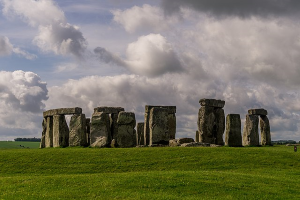
image for illustration: Stonehenge by Sumit Surai – Own work, CC BY-SA 4.0
A major new study, announced today, will measure the economic and non-economic value of the UK’s UNESCO sites. From the world-renowned Stonehenge, Tower of London and the Lake District, to Biosphere Reserves, Global Geoparks and the Creative Cities network, UNESCO-designated sites cover 14% of the UK’s land area and are home to 9 million people.
UK National Commission for UNESCO writes:
The new study – a partnership between the UK National Commission for UNESCO (UKNC) and the AHRC-funded Creative Industries Policy and Evidence Centre (Creative PEC) will pioneer new methodologies to understand value not just in economic terms, but also the wider value of local partnerships and collaboration.
A.R.S. Progetti has been announced as the lead consultant for the new study, which is funded by the National Lottery Heritage Fund and Creative PEC under the UKNC’s Local to Global Programme. ARS Progetti is an international consulting firm dedicated to tackling complex social, cultural, and infrastructural challenges worldwide. Working across various fields, including governance, cultural heritage, education, urban planning, and environmental management, the firm partners with public authorities and communities to deliver practical and sustainable solutions.
James Bridge, Secretary-General and Chief Executive of the UK National Commission for UNESCO, said: ‘At a time when some may ask what the United Nations is really for, UNESCO sites give us a clear answer: they bring hundreds of millions of people, and multiple communities together around the world. They don’t just protect world-famous cultural and natural heritage, they use it as a foundation to face today’s challenges, whether that be community resilience or climate change. Through this study, we want to demonstrate that partnerships forged through UNESCO sites are practical, powerful, and laboratories for creating a better future together.’
UNESCO sites in the UK range from world-renowned World Heritage Sites to Biosphere Reserves, Global Geoparks, and Creative Cities. While they include rural, urban, coastal, and island communities, they share a common role: to localise and fulfil UNESCO’s global mandate of peace, sustainability, and international cooperation. At a time when UNESCO and the wider UN system are seeking new ways to understand and invest in value and partnership, this study will demonstrate the UK’s leadership and contribute to UNESCO’s unique position as the only UN agency at the centre of a global network of people, places, and communities.
Professor Giorgio Fazio, Research Director, Creative PEC said: ‘Understanding how UNESCO designation shapes the economic and social value generated through partnerships across UK sites is a complex but critical undertaking. We are delighted to partner with UNESCO UK in this pioneering project, working alongside ARS Progetti and the University of Manchester to develop innovative methodologies that fully capture such value. We hope these methodologies will become the new standard for measuring the value of similar partnerships worldwide.’
Daniele Fanciullacci, Chief Executive of A.R.S Progetti S.P.A., said: ‘This assignment is a great opportunity for us to deepen a theme most important in our practice: cultural and natural heritage as vector of social balance, social change and innovation. The insightful brainstorming activated by UNESCO UK on how to measure the partnership’ benefits of UNESCO sites, cultural and natural, in the UK shall lead to innovative analytical frameworks, hopefully applicable to other sites in future.’
